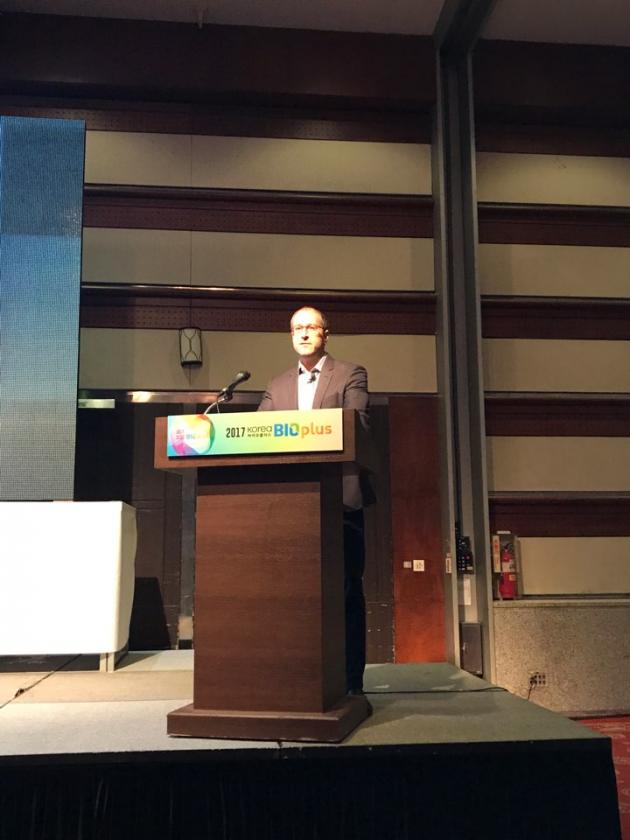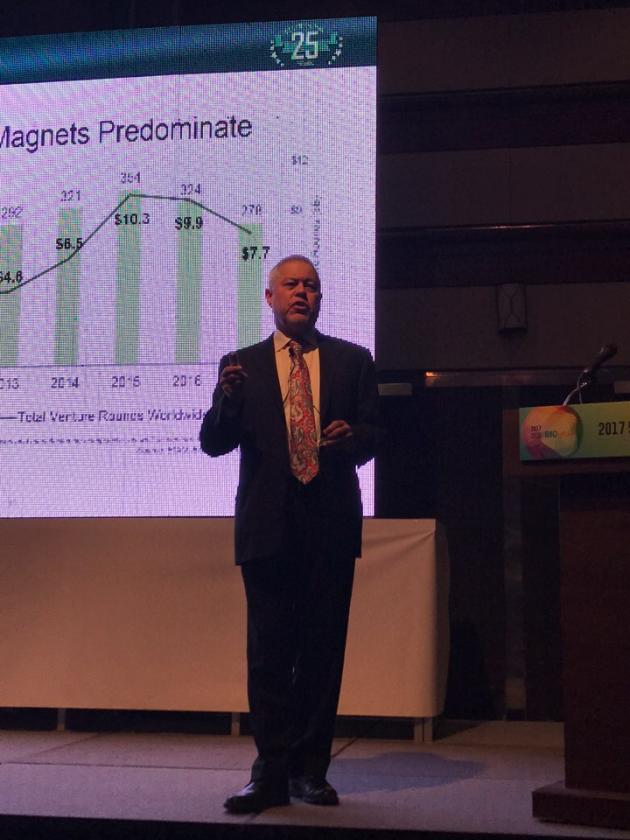The 2017 Korea Bioplus opened its third annual conference to discuss global biotechnological issues in Seoul Monday.
Attending the conference are Korean and foreign institutions and businesses related to biotechnology, including the Massachusetts Institute of Technology, analyzing various areas such as global bio-logistics, new trend bio-drug, genome business and smart start. The conference also included a separate section regarding collaboration with MIT.
It focused on two primary topics – the Fourth Industrial Revolution and biotechnology, and bio-ecosystem for startup.

Mark Bathe, an associate professor of biological engineering at MIT, made the keynote remark regarding the first topic. “The 4th industrial revolution is driving major economic and industrial challenges,” Bathe said. “For the life science industry, there are accelerated developments in big data, machine learning, smart sensors and the Internet of Things.”
All four areas have made a vast leap forward in the past few years and will drive the biotechnology industry, Bathe noted.
“However, some major challenges such as ethics of data security and patient privacy, the liability of diagnostics and prognostics, integration of information and data across various criteria and threats of cybersecurity and terrorism still exist,” Bathe added.
David Flores, CEO of Biocentury, gave the address on the second topic.
“It is important to enter the bio-ecosystem,” Flores said. “A network of academics, strategic investors, and venture capitalists form the bio-ecosystem that lets biotechnology companies enter the system.”
Science cannot become a reality with just ideas it has to be invested and joined in various networks, Flores noted.

“I have not seen much of Asia's involvement in innovation clusters and networks. The key innovation network should include Asia, including Korea. Trust and credit are important to Korea because they can be obtained from the network," he added. “Asia is only networking on its own, but innovators should think about what their company is shown outside of Asia and Korea.”
Flores pointed out that Korean innovators and company owners who want to globalize and join such eco-systems should describe their biology, hire translation engineers to further their reach, enable data science, conduct clinical research that demonstrates outcomes and join networks that can share such data.
Seo Jeong-sun 서정선, president of Korea Biotechnology Industry Organization, summed up the conference's goal: “The theme of this conference is open innovation and bio-industry ecosystem. It is important for entrepreneurship to join and create a bio-ecosystem.”
To do this, a precise guideline is required, Seo added.

